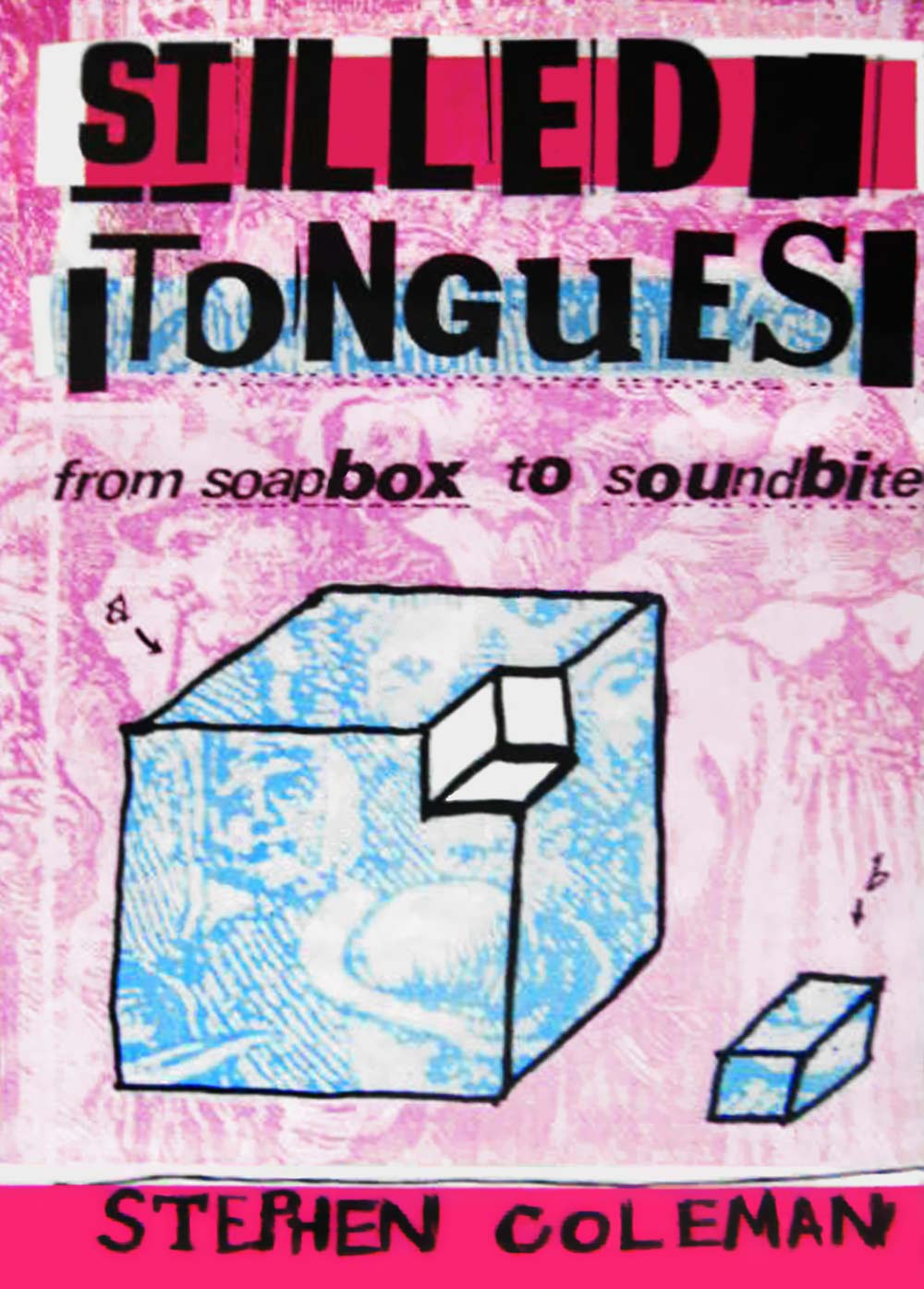
Book Reviews
Stilled Tongues: From Soapbox To Soundbite
by Stephen Coleman
Porcupine Press, 1997, £8.99 pb
Review by Andy Johnson
Squall 15, Summer 1997, pg. 52.
In 1732 Thomas Snout was tried for his life at the Old Bailey for shouting in public “God damn King George”. In December 1656, after six weeks debate, the House of Commons resolved not to hang James Naylor, a Quaker preacher. They decided instead to bore a hole through his tongue.
Naylor had consternated the powers that be - church and government - by criticising them at an open air meeting with the words: “God is against you covetous cruel oppressors who grind the faces of the poor and needy.”
Not until 1872 was the right to gather freely and discuss enshrined in law.
The first half of Stephen Coleman’s analysis of free speech and democracy in Britain provides an immensely readable history of the struggle for this basic right.
From around 1400 the heresy laws assured a certain death to anyone who dared criticise the church (people used to heckle at mass). But a serious challenge to the state’s successful attempts to suppress free speech was not mounted until the Chartist movement of the last century.
In 1819, 500 people were injured and 11 killed when the cavalry charged an open air meeting in St Peter’s Field, Manchester.
Fearing a repeat of the Peterloo massacre, the government drew back from carrying out its threat to forcibly prevent a meeting of the Reform League in Hyde Park, in 1867.
One hundred and fifty thousand people turned up. Troops and police stood impassively by.
There followed an “age of discussion” where speakers would gather every week in parks and street corners across the country.
This, argues Coleman, was democracy in action. Politicians and pontificators could be heckled and questioned. They had to know their stuff and meetings could go on for hours.
But the advent of the motor car, which drowned out unamplified voices, and radio and television, killed this.
With radio and TV discussion became one way - politicians spoke, the audience listened. Speakers were questioned by self-appointed broadcasters. Any role of the audience was to ask one vetted question to provide a topic for ‘debate’. Audience participation in the discussion is seen as undesirable, and a headache for the editors.
Coleman concludes that although the right to free speech is now assured, there is no where to practice it. Public opinion becomes a mass which individuals fear to differ from. Dissent is, in effect, silenced.
The first, historical, half of the book jaunts along. After the readable history comes the thicker analysis and theorising. Not as easy, but equally fascinating.
